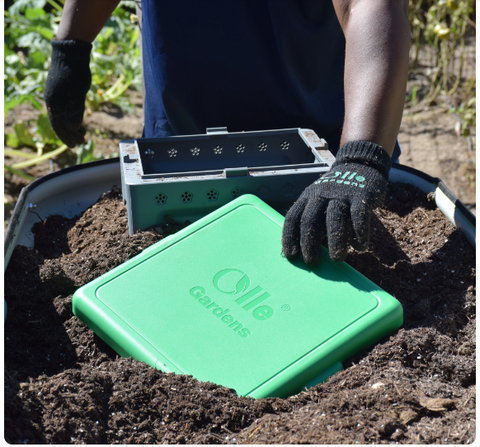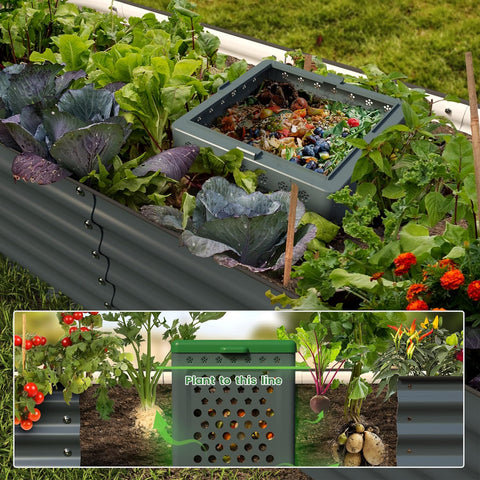Harnessing Nature's Power: Crafting the Perfect Worm Compost for Your Raised Garden Bed
Gardening enthusiasts and eco-conscious individuals alike are increasingly turning to sustainable practices, and one of the most effective ways to nourish your plants naturally is through worm composting. Worm composting, also known as vermicomposting, involves using worms to break down organic waste into nutrient-rich compost. When applied to a raised garden bed, this compost becomes a powerhouse of organic goodness for your plants. In this article, we'll explore the art of creating the perfect combination of natural fertilizers for your worm compost bin in a raised garden bed.
Understanding Worm Composting:
Before delving into the world of natural fertilizers, it's essential to understand the basics of worm composting. Redworms, specifically Eisenia fetida, are the champions of this process. They consume organic matter, such as kitchen scraps, vegetable peelings, and yard waste, and transform it into nutrient-rich castings, also known as worm poop.
Choosing the Right Worms:
Selecting the right type of worms is crucial for successful vermicomposting. Redworms are voracious eaters and prolific reproducers, making them the ideal choice for your compost bin. Ensure you have a sufficient population to handle the amount of waste generated in your raised garden bed.
Building the Perfect Worm Compost Bin:
Constructing a worm compost bin for your raised garden bed is relatively simple. You can use a variety of materials, such as wood, plastic, or even repurposed containers. Drill holes for aeration and drainage and provide a cozy bedding layer made from shredded newspaper or cardboard. Now, let's dive into the heart of the matter – the natural fertilizers that will supercharge your compost.
Ideal Combinations of Natural Fertilizers:
-
Kitchen Scraps:
- Fruit and vegetable peelings
- Coffee grounds
- Crushed eggshells
-
Yard Waste:
- Shredded leaves
- Small twigs and branches
- Grass clippings (in moderation)
-
Manure:
- Well-aged horse or cow manure
- Avoid using pet waste or fresh manure to prevent potential pathogens
-
Cover Crops:
- Planting cover crops like clover or legumes in the raised garden bed provides green material for the compost bin when turned under.
-
Wood Ash:
- Moderate amounts of wood ash can add potassium and help balance the pH of the compost.
-
Seaweed:
- Rinse off excess salt and chop seaweed finely before adding it to the compost. It introduces valuable trace minerals.
-
Crushed Rock Dust:
- Rock dust, such as granite or basalt, can enhance the mineral content of your compost.
-
Comfrey Leaves:
- Rich in nutrients, comfrey leaves accelerate the decomposition process.
Remember to balance the "greens" (nitrogen-rich materials) and "browns" (carbon-rich materials) in your compost bin to maintain the right moisture and nutrient balance.
Conclusion:
Creating the perfect worm compost for your raised garden bed involves combining a variety of natural fertilizers in a balanced and thoughtful manner. The synergy of kitchen scraps, yard waste, manure, cover crops, wood ash, seaweed, crushed rock dust, and comfrey leaves will result in nutrient-dense compost that promotes healthy plant growth. Embrace the power of vermicomposting and watch your raised garden bed flourish with vitality and sustainability.


